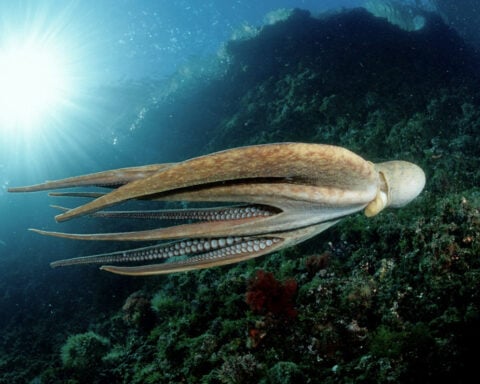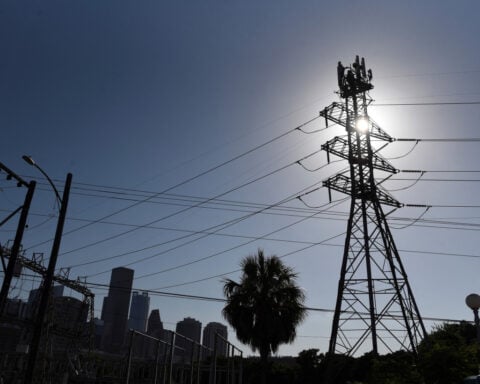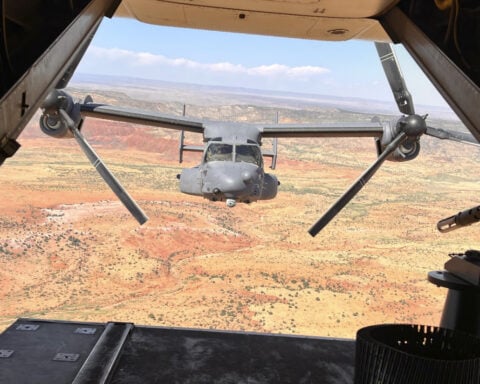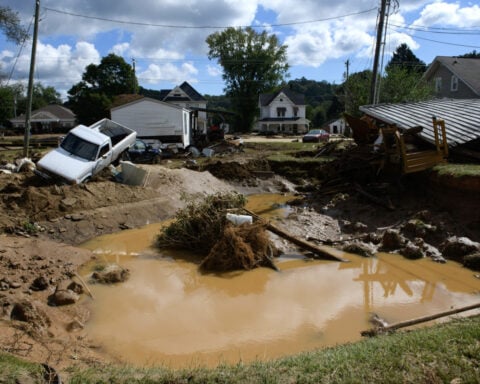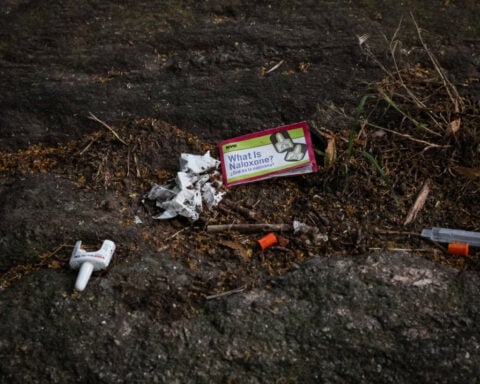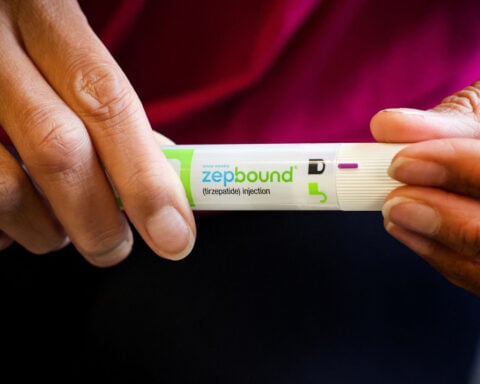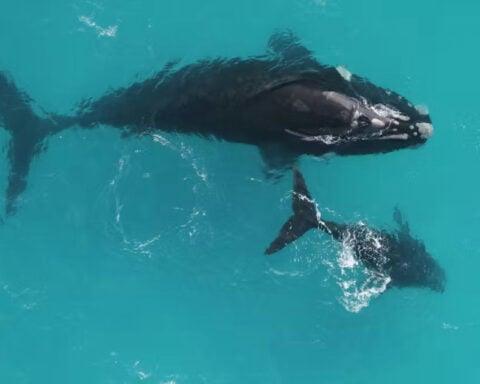NASA plans to send humans on a scientific round trip to Mars potentially as early as 2035. The trip will take about six to seven months each way and will cover up to 250 million miles (402 million kilometers) each way. The astronauts may spend as many as 500 days on the planet’s surface before returning to Earth.
NASA’s Artemis program plans to return humans to the Moon this decade to practice and prepare for a Mars mission as early as the 2030s. While NASA has several reasons for pursuing such an ambitious mission, the biggest is scientific exploration and discovery.
I’m an atmospheric scientist and former NASA researcher involved in establishing the scientific questions a Mars mission would investigate. There are lots of mysteries to investigate on the red planet, including why Mars looks the way it does today, and whether it has ever hosted life, past or present.
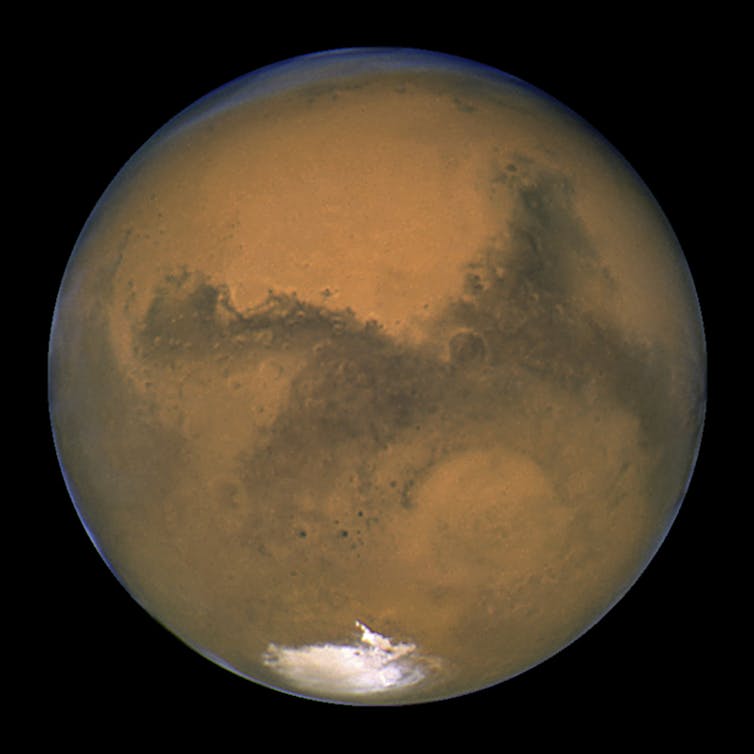
Mars geology
Mars is an intriguing planet from a geological and atmospheric perspective. It formed with the rest of the solar system about 4.6 billion years ago. Around 3.8 billion years ago, the same time that life formed on Earth, early Mars was very Earth-like. It had abundant liquid water on its surface in the form of oceans, lakes and rivers and possessed a denser atmosphere.
While Mars’ surface is totally devoid of liquid water today, scientists have spotted evidence of those past lakes, rivers and even an ocean coastline on its surface. Its north and south poles are covered in frozen water, with a thin veneer of frozen carbon dioxide. At the south pole during the summer, the carbon dioxide veneer disappears, leaving the frozen water exposed.
Today, Mars’ atmosphere is very thin and about 95% carbon dioxide. It’s filled with atmospheric dust from the surface, which gives the atmosphere of Mars its characteristic reddish color.
Scientists know quite a bit about the planet’s surface from sending robotic missions, but there are still many interesting geologic features to investigate more closely. These features could tell researchers more about the solar system’s formation.
The northern and southern hemispheres of Mars look very different. About one-third of the surface of Mars – mostly in its northern hemisphere – is 2 to 4 miles (3.2-6.4 kilometers) lower in elevation, called the northern lowlands. The northern lowlands have a few large craters but are relatively smooth. The southern two-thirds of the planet, called the southern highlands, has lots of very old craters.
Mars also has the largest volcanoes that scientists have observed in the solar system. Its surface is peppered with deep craters from asteroid and meteor impacts that occurred during the early history of Mars. Sending astronauts to study these features can help researchers understand how and when major events happened during the early history of Mars.
Asking the right questions
NASA formed a panel called the Human Exploration of Mars Science Analysis Group to plan the future mission. I co-chaired the panel, with NASA scientist James B. Garvin, to develop and assess the key scientific questions about Mars. We wanted to figure out which research questions required a human mission to address, rather than cheaper robotic missions.
The panel came up with recommendations for several important scientific questions for human investigation on Mars.
One question asks whether there’s life on the planet today. Remember, life on Earth formed about 3.8 billion years ago, when Earth and Mars were similar-looking planets that both had abundant liquid water and Mars had a denser atmosphere.
Another question asks what sort of environmental changes led Mars to lose the widespread, plentiful liquid water on its surface, as well as some of its atmosphere.
These questions, alongside other recommendations from the panel, made it into NASA’s architectural plan for sending humans to Mars.
How do you get to Mars?
To send people to Mars and return them safely to Earth, NASA has developed a new, very powerful launch vehicle called the Space Launch System and a new human carrier spacecraft called Orion.
To prepare and train astronauts for living on and exploring Mars, NASA established a new program to return humans to the Moon, called the Artemis program.
In mythology, Artemis was Apollo’s twin sister. The Artemis astronauts will live and work on the Moon for months at a time to prepare for living and working on Mars.
The Space Launch System and Orion successfully launched on Nov. 16, 2022, as part of the Artemis I mission. It made the Artemis program’s first uncrewed flight to the Moon, and once there, Orion orbited the Moon for six days, getting as close as 80 miles (129 kilometers) above the surface.
Artemis I splashed back down to Earth on Dec. 11, 2022, after its 1.4 million-mile (2.2 million-kilometer) maiden journey.
Artemis III, the first mission to return humans to the lunar surface, is scheduled for 2026. The Artemis astronauts will land at the Moon’s south pole, where scientists believe there may be large deposits of subsurface water in the form of ice that astronauts could mine, melt, purify and drink. The Artemis astronauts will set up habitats on the surface of the Moon and spend several months exploring the lunar surface.
Since the Moon is a mere 240,000 miles (386,000 km) from Earth, it will act as a training ground for the future human exploration of Mars. While a Mars mission is still many years out, the Artemis program will help NASA develop the capabilities it needs to explore the red planet.

Joel S. Levine receives funding from NASA. I serve as a consultant to NASA's Engineering and Safety Center (NESC).
Source: The Conversation

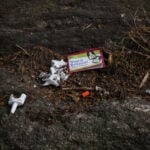 How to save a fentanyl victim: Key facts about naloxone
How to save a fentanyl victim: Key facts about naloxone
 Eight convicted in France over murder of teacher who showed Prophet caricature
Eight convicted in France over murder of teacher who showed Prophet caricature
 Death toll from German Christmas market car-ramming rises to four, Bild reports
Death toll from German Christmas market car-ramming rises to four, Bild reports
 France's Mayotte struggles to recover as cyclone overwhelms hospitals
France's Mayotte struggles to recover as cyclone overwhelms hospitals
 Russia's UK embassy denounces G7 loans to Ukraine as 'fraudulent scheme'
Russia's UK embassy denounces G7 loans to Ukraine as 'fraudulent scheme'
 Pope calls Gaza airstrikes 'cruelty' after Israeli minister's criticism
Pope calls Gaza airstrikes 'cruelty' after Israeli minister's criticism
 Retailer Party City files for bankruptcy, will wind down 700 stores
Retailer Party City files for bankruptcy, will wind down 700 stores
 Soccer's top players have had enough, as FIFA's new super-sized tournament sparks a revolt
Soccer's top players have had enough, as FIFA's new super-sized tournament sparks a revolt
 Lindsey Vonn finishes 14th in a super-G to mark her return to World Cup skiing at age 40
Lindsey Vonn finishes 14th in a super-G to mark her return to World Cup skiing at age 40
 Santa and Mrs. Claus use military transports to bring Christmas to an Alaska Native village
Santa and Mrs. Claus use military transports to bring Christmas to an Alaska Native village
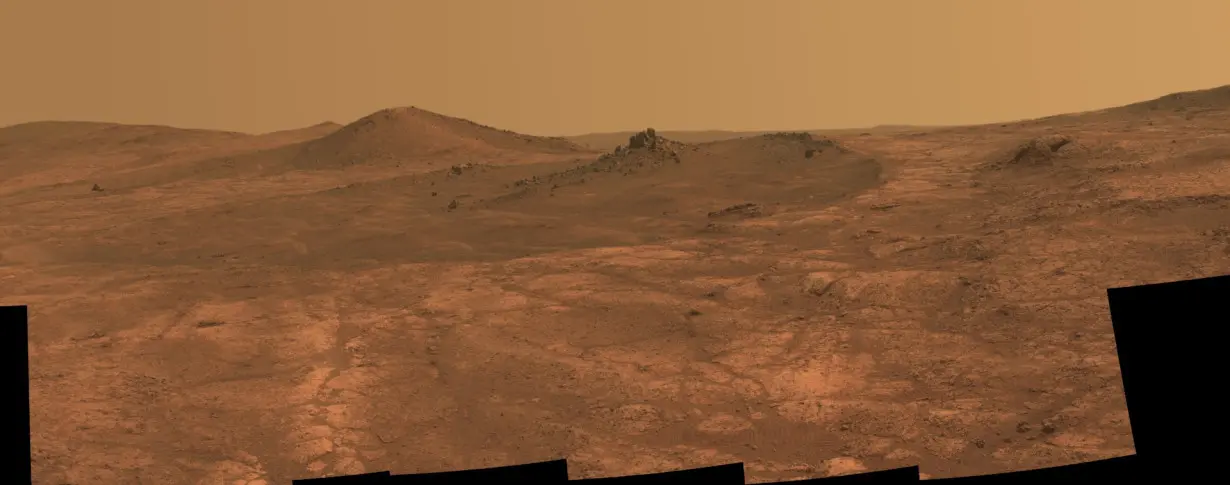 Mars' craters come from ancient collisions during the formation of the solar system.
Mars' craters come from ancient collisions during the formation of the solar system.
